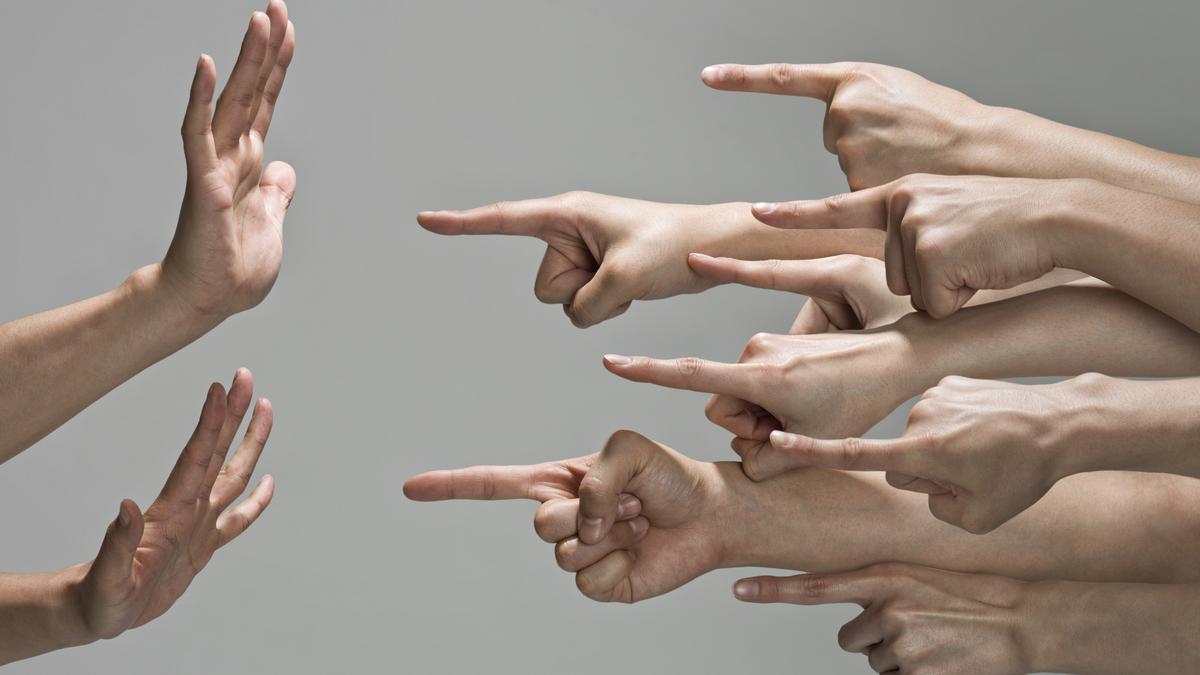
The obsession with lighter skin, slimmer bodies, and idealised beauty pervades everything from advertisements to casual conversations.
| Photo Credit: Getty Images
It’s a familiar scene in many Indian households: a family gathering where casual remarks about body size, skin tone, or even how someone speaks are thrown around like harmless jokes. But for the recipient, these words often leave lasting scars. We laugh it off in the moment, but deep down, the damage runs deeper than we realize. These casual observations, like telling someone they’ve gained weight, or mocking their skin colour are not as innocuous as they seem. While excused as “family banter”, they shape how we view ourselves and others, creating a toxic environment that feeds into insecurities and self-worth.
These comments go beyond mere teasing, they are deeply rooted in societal conditioning. The obsession with lighter skin, slimmer bodies, and idealised beauty pervades everything from advertisements to casual conversations. Women are pressured both before and after marriage to use make-up and fairness creams to appear “presentable”. Men, too, are expected to be tall and fair, and to fit traits seen as prerequisites for success and marriage. These rigid standards create suffocating pressure, trapping individuals in cycles of comparison and insecurity.
Body shaming, about weight or height or complexion, is rampant. Constant comparisons fuel feelings of inadequacy. Often, those who mock others are projecting their own unresolved insecurities. It becomes a coping mechanism: tearing others down to temporarily feel better. This cycle of pain is rooted in a fragile sense of self-worth and a refusal to confront personal vulnerabilities. In the process, humanity is lost. We dehumanise others just to shield our own ego.
The real cost
The effects of these remarks are far from fleeting. For many, the pain lingers and festers into serious mental health issues such as anxiety, depression, and even suicidal thoughts. Some begin to avoid social gatherings, trapped in negative self-talk and shame. Tragically, much of this hurt comes not from strangers but from those closest to us, family members, and friends. Take, for example, the instances where parents or spouses blame a child or partner for their skin tone or appearance. These comments may seem trivial, but their cumulative effect can have devastating consequences. When someone grows up hearing that they are not “good enough” because of how he or she looks, it becomes difficult to see themselves as worthy of love and acceptance.
As if societal and familial pressures were not enough, social media adds another layer of scrutiny. Platforms such as Instagram present curated snapshots of “perfect” lives: slim bodies, glowing skin, flawless smiles. Filters, editing apps, and cosmetic surgery trends amplify these unattainable ideals. For those who don’t or can’t conform, the result is alienation and self-doubt. Even when individuals try to challenge these norms by promoting body positivity, they are often met with trolling and ridicule. Instead of celebrating diversity, online spaces frequently echo the same toxic standards, deepening the mental health crisis.
As the trend of cosmetic surgery, including fillers, and Botox becomes more widespread, especially among younger generations, the consequences could be grave. These practices might soon become the norm in India, not just as a means of self-expression, but as a desperate attempt to conform to a toxic beauty standard. It’s time to change the narrative. Beauty should not be defined by skin tone, body type, or symmetry, but by uniqueness, compassion, and character. We must start by teaching children that their worth lies not in how they look, but in who they are.
Parents must stop comparing children whether in academics, appearance, or behaviour. Let’s prioritise qualities like kindness, creativity, and resilience over superficial traits. We must also reflect on how we speak about others in homes, public spaces, and online. Instead of tearing people down, let’s lift them up. Let’s replace the culture of mockery with one of empathy. The next time we gather with family or scroll through social media, let’s choose kindness. Let us be the generation that shifts the focus from appearance to authenticity, from judgment to acceptance.
Published – July 27, 2025 02:40 am IST
